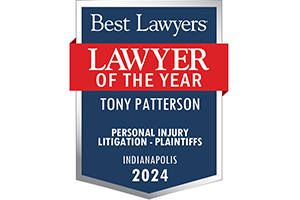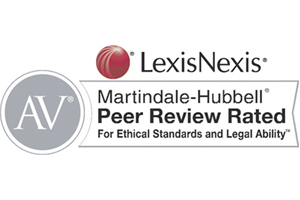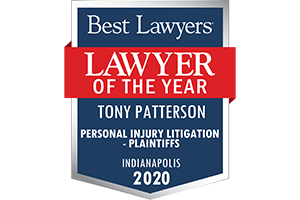State Trucking Rules
State Trucking Rules
Indiana Truck Accident Law
The Indiana truck accident lawyers at Parr Richey Frandsen Patterson Kruse LLP are established leaders in pursuing personal injury claims. We have successfully handled all types of cases involving truck collisions caused by state law violations. Founded in 1899, we have dedicated the past 40 years of our practice to helping negligence victims, including truck accident victims, recover the compensation they deserve.
State Rules and Regulations for Intrastate Trucking
Trucks and other commercial vehicles travel over 9.5 billion miles on Indiana roads each year, transporting goods and services within the state. Their massive presence is has a large impact on Indiana’s safety and traffic conditions as well as its commerce. Commercial-vehicle operators and their owners may be subject to state rules and regulations involving:
- Intrastate fuel taxes
- Maximum seating capacity
- Minimum insurance coverage
- Private and for-hire carriers
- Plates, registration, and title
- Trucks with 3 or more axles
- Hazardous material placards
- Oversize/overweight permits
Insurance requirements are prescribed based on the vehicle’s gross weight, whether it is transporting 9 or more passengers, and the type of cargo being hauled. All intrastate truckers carrying hazardous material must show proof of financial responsibility. The policy holds commercial drivers and employers liable for bodily injury or death in case of a crash.
Truck Safety Regulations
Indiana law defines commercial carriers as any towed or self-propelled vehicle transporting property or passengers on a highway in intrastate commerce. State safety rules reflect the Federal Motor Carrier Safety Regulations enacted to minimize truck accidents. The rules apply to all commercial vehicles, outlining requirements involving:
- Inspection and repair
- Driver qualification
- Hours-of-service logs
- Vehicle maintenance
- Out-of-service orders
- Safety fitness protocols
- Substance, alcohol tests
- Parking hazardous waste
- Broker freight forwarding
- Transporting migrant workers
- Parts needed for safe operation
A commercial driver’s license (CDL) is required to operate all trucks and combination vehicles weighing over 10,000 lbs. To operate in Indiana, drivers must be at least 18 years old, carry a valid CDL and medical certificate confirming their physical qualification to drive. Rules differ for trucks operating in interstate commerce.
Equipment Safety Requirements
Indiana law requires that every bus, truck, and tractor-trailer be equipped with a fire extinguisher and colored devices for vehicles stopped in emergencies. In addition, certain equipment and functions must be inspected prior to every trip, including:
- Horn, tires
- Wheels, rims
- Brakes, wipers
- Steering, brakes
- Radio connection
- Rear-view mirrors
- Lighting, reflectors
- Emergency protection
- Trailer-brake connection
Indiana issues a decal for commercial vehicles that pass safety inspections with no violations. Drivers who violate hours-of-service regulations and vehicles that fail safety checks are ordered out-of-service under state law. Federal law permits out-of-service orders to be issued to companies employing the unsafe driver or vehicle.
Recover Compensation for Injury
Accidents involving violations of state rules and intrastate trucking regulations require seasoned legal counsel. The Indiana personal injury attorneys at Parr Richey Frandsen Patterson Kruse LLP have over 40 years of experience handling negligence claims. During that time we have successfully handled multiple negotiations with negligent drivers, liable employers, and their insurers. We maximize your compensation for damages caused by truck accidents resulting in personal injury or wrongful death.











